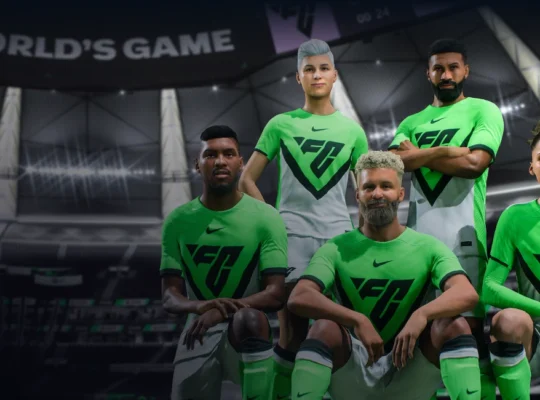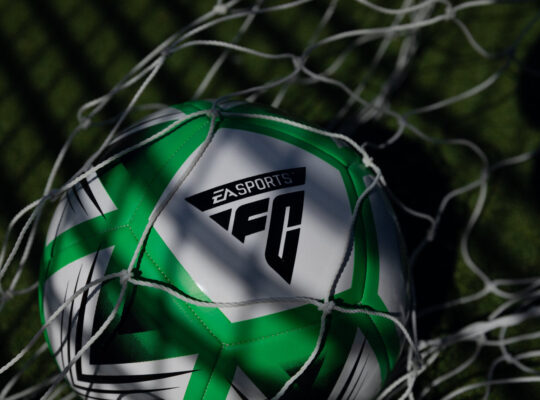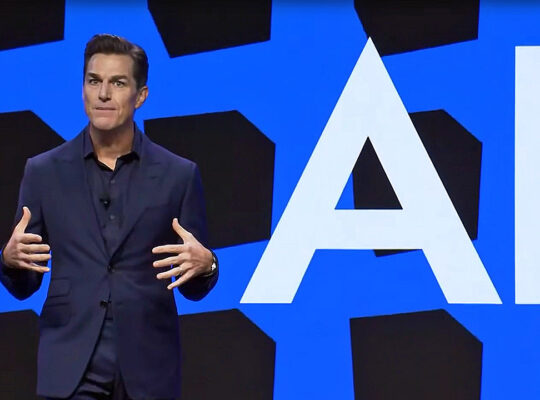Football video games have been a massive part of our lives, bringing friends together for countless hours of fun and competition. From the golden days of FIFA and Pro Evolution Soccer (PES) dominating our living rooms to the diverse range of football games that once filled the market, we’ve seen a lot of changes.
But as we move forward, the future of football gaming is shaping up to be something truly exciting. This article will explore the evolution of these games, the challenges and innovations of recent years, and the new contenders aiming to change the game once again. Let’s dive into what the future holds for football gaming and how it might just recapture the magic that made us all fall in love with it in the first place.
Chapter 1: The Rise of FIFA and PES
Growing up, gaming was a communal activity. Single player games were great, but the real fun was found in a room packed with people playing a game with the winner staying on and the losers passing the second controller amongst themselves. Everyone loved football, so naturally, we gravitated towards football games over all others.
One day that stays in my memory is my cousin beating one of my mates 8-1. Just as the commentator shouted the goal scorer’s name, the disc jammed, and we heard “So-So-So-Solskjær!” on repeat. We all burst out laughing while the poor kid who got thrashed started to cry, but we couldn’t help finding it hilarious. Interestingly, the commentator was Peter Drury, and we weren’t playing FIFA or Pro Evolution Soccer. We were playing a game called This Is Football 2.
Dwight Yorke and Andy Cole on This Is Football 2 🎮
(via @T_I_F_G) pic.twitter.com/EWup8TWlFI
— 90s Football (@90sfootball) May 13, 2024
In the early 2000s, FIFA and Pro Evolution Soccer (PES) were the most popular football titles, but they were not the only football titles around. Between the clumsy but fun This Is Football and the cartoonish violence of RedCard, to the hyper-stylised FIFA Street and even Super Mario Strikers, the genre had a little something for everyone.
There were even club, player, and competition-specific games as I remember spending a few hours playing Arsenal Club Football on my cousin’s PS2. There were so many different football games even before then, with the 90s boasting a catalogue of games that fans still hold dearly. However, FIFA and PES were always the most popular football games.
FIFA was the game you went to for authenticity. EA has always used exclusive licenses to force out their competition in sports games, offering the most authentic gameplay experience as a result. People love to play as their favourite teams, and many just can’t look past having to play as ‘North London’ when there’s another game that has Arsenal fully licensed.
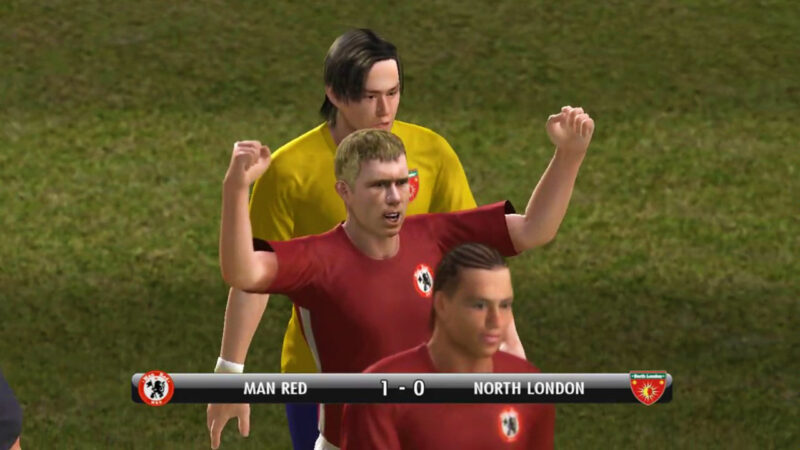
Games like This Is Football couldn’t secure the necessary licenses to compete with FIFA’s extensive roster of teams and leagues. With gaming consoles becoming more powerful, the development costs required to produce a high-quality football game also increased. That, coupled with the heavy marketing necessary to compete with EA, doomed smaller studios who just couldn’t keep up. Slowly, the competition started to die out.
PES or Pro Evo, however, had a magic that captured the hearts of gamers in the mid-2000s. It didn’t matter that the Brazil squad had players like ‘Naldorinho’ on it. People just loved to play the game. In fact, PES 6 is widely regarded to be one of the best football game ever featuring the legendary Adriano as its cover star.
Konami’s game ingrained itself just as deeply into the fabric of football culture as FIFA had. As the 2010s emerged, the two were not just the most popular football games, they were the only football games left.
Chapter 2: Football Gaming in the 2010s
The 2010s saw a significant shift in football games toward realism, moving away from the arcade-style games that fans had grown to love. EA Sports led this transformation by changing game engines and introducing modes designed to provide a more immersive experience. However, it was online gaming that truly revolutionized football games.
The emergence of FIFA Ultimate Team (FUT) took football gaming online in a major way, becoming the focal point of the series. FUT’s introduction marked a turning point, making FIFA the dominant title over PES. Despite having a loyal fanbase, PES struggled to compete with EA Sports’ juggernaut. EA continued to innovate, with each yearly release bringing improvements in graphics, gameplay mechanics, and new features that pushed the game towards greater realism.
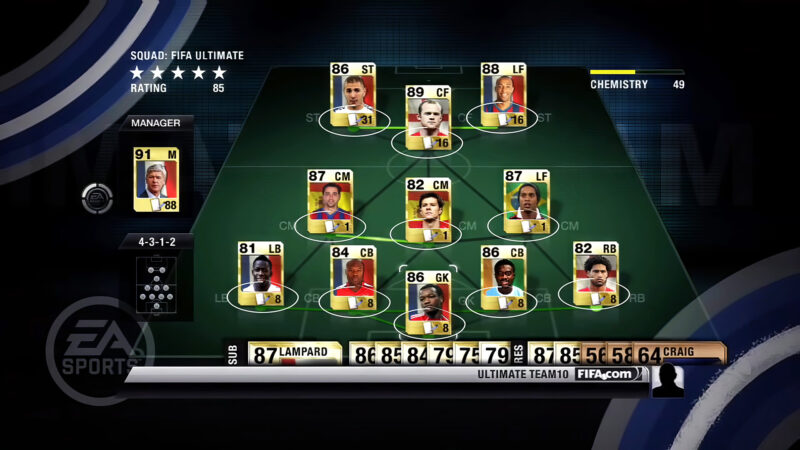
FUT increased player engagement and significantly boosted EA’s revenue, cementing FIFA’s place as the leading football game of the decade. This mode, more than any other, showcased the potential of online gaming and its impact on the football gaming genre. The lure of building a dream team by collecting player cards and competing against others worldwide transformed FIFA from just a game to a global phenomenon.
FUT became not only the most popular mode in FIFA but also set a new standard for what football games could achieve. As a result, FIFA cemented itself as the default football game for a generation of gamers, defining their football gaming experience and shaping the landscape of the genre for years to come.
Meanwhile, Konami was forced to adapt. Despite the deep affection many gamers held for PES, it couldn’t keep pace with EA’s relentless innovation and marketing power. In 2019, Konami rebranded PES as eFootball and transitioned to a free-to-play model, aiming to attract a broader audience and establish its own lane in the market. This move was a bid to give the game a chance to thrive independently, acknowledging that competing directly with FIFA was no longer a viable strategy.

The rebranding to eFootball and the adoption of a free-to-play model marked a significant shift for Konami. It represented an effort to carve out a niche where the game could coexist with FIFA, focusing on accessibility and tapping into the growing trend of free-to-play games. While the transition had its challenges, it was a necessary step to ensure the survival and growth of Konami’s football franchise in a market increasingly dominated by EA Sports.
Chapter 3: The Present and Future of Football Gaming
The 2020s have brought a wave of disillusionment among football gamers, driven by the increasing monetization of the genre. What was once about capturing the essence of the beautiful game has become a battleground of microtransactions and paywalls, leaving many players yearning for something different.
FIFA, now rebranded as EA Sports FC, has been at the forefront of this shift. The focus has moved from creating a pure football experience to crafting a gambling simulator disguised as a football game. FUT has become a cash cow for EA, with players spending a fortune on packs to build their dream teams.
This pay-to-win model has overshadowed the core gameplay, pushing many loyal fans to the breaking point. Instead of refining and perfecting the football experience, EA has concentrated on maximising revenue, leading to a game that often feels more like a slot machine than a sports simulator.

eFootball has not fared much better. Although it transitioned to a free-to-play model, its content is largely hidden behind aggressive monetisation strategies. Players often find themselves unable to access significant features and teams without spending money, making the game feel restrictive and inaccessible to those unwilling to pay. The dream of a pure, skill-based football game has been buried under layers of financial barriers.
However, the growing dissatisfaction with the current state of football gaming has opened the door for new competitors. The time has never been better for fresh faces to enter the scene and challenge the status quo. One such contender is UFL, which recently showcased its potential in an open beta. Promising a different approach, UFL aims to offer a free-to-play model without the pay-to-win pitfalls that plague its competitors.
The First SIUUU on UFL pic.twitter.com/EZ9d7HMpu4
— Nick (@NickRTFM) June 6, 2024
The beta provided a glimpse of a game that prioritizes skill, manual controls, and a fair progression system, reigniting hope among disheartened players. Their open beta was a breath of fresh air. The game looked clean, with lightning-fast menus and a fun direction for gameplay. Manual defending was rewarding, and while the game had flaws—such as the need for better shooting mechanics and more responsive dribbling—it was undeniably fun.
The promise of a non-pay-to-win model was particularly appealing, suggesting a future where skill and strategy could triumph over deep pockets.
Beyond UFL, other contenders are also preparing to make their mark. GOALS, a game still in its early stages, promises a return to the arcade-style gameplay of yesteryear. This shift is something many players have been crying out for, yearning for a time when football games were about fast-paced fun rather than meticulous simulation.
They are gearing their game to be the first truly eSports ready football game and have come out the gate swinging, hosting two Community Cup events with real cash prizes while the game is still in the pre-alpha stage of development. Interestingly, the game will not feature any real world players, featuring a cast made exclusively of unique players generated by the game. These players will age and be replaced by newly generated players over time.
Additionally, there is another football game called Man of The Match (MOTM) that has been announced. In this game, gamers create a virtual avatar of themselves and can play as either a player or a manager. You can be the hero of the game. As such, this game will also not feature real world players as it would defeat the purpose of the game. They are still in the pre-alpha stage of development but they announced in May 2024 that they had received their first round of investment and development will now kick into overdrive.
🤔#motm #manofthematch #football #soccer #gameplay pic.twitter.com/ZAP0pXGhH1
— Man of the Match (@motm_game) June 10, 2024
Even FIFA, as announced by President Gianni Infantino, is planning a comeback with a new game that could potentially collaborate with 2K Games. The return of such a culturally relevant title with the backing of a massive studio like 2K Games could pose a bigger threat to EA’s dominance than anything else. 2K Games already ran EA Sports’ NBA Live series out of the basketball scene so who is to say they cannot come up with a football game that can do the same to EA Sports FC?
We will also be getting Copa City—a football tycoon game set for release in 2025. The game will be an immersive football event simulator rather than a football simulator, providing a unique spin on the genre. Select international clubs such as Arsenal, Bayern München, and Flamengo will feature in this game, with more to be announced before the release date.
Accompany the fans from their arrival all the way to the football event they came for ✈️
Only in Copa City will you be able to be this close to their journey!#copacity #firstfootballtycoon pic.twitter.com/D7W5FY4XNU
— Copa City (@CopaCityGame) June 19, 2024
Football gaming is on the brink of an exciting change. With growing frustration over the current options, new games like UFL, GOALS, and the possible return of a FIFA-branded title are bringing a fresh sense of hope.
This new wave of football games promises more choices and a return to the fun, competitive spirit that got us hooked in the first place. Players don’t have to stick with EA Sports FC as their go-to game anymore. Instead, they can look forward to a mix of innovation and genuine passion for the sport.
Playing the UFL open beta was a blast and reminded me of the joy I felt back in the day with games like This Is Football. It’s proof that the heart of football gaming is still beating strong, ready to be rediscovered by a new generation of gamers. The excitement of these new titles shows that the future of football gaming is not just bright, but also filled with the same thrill that made us all fans in the first place.


